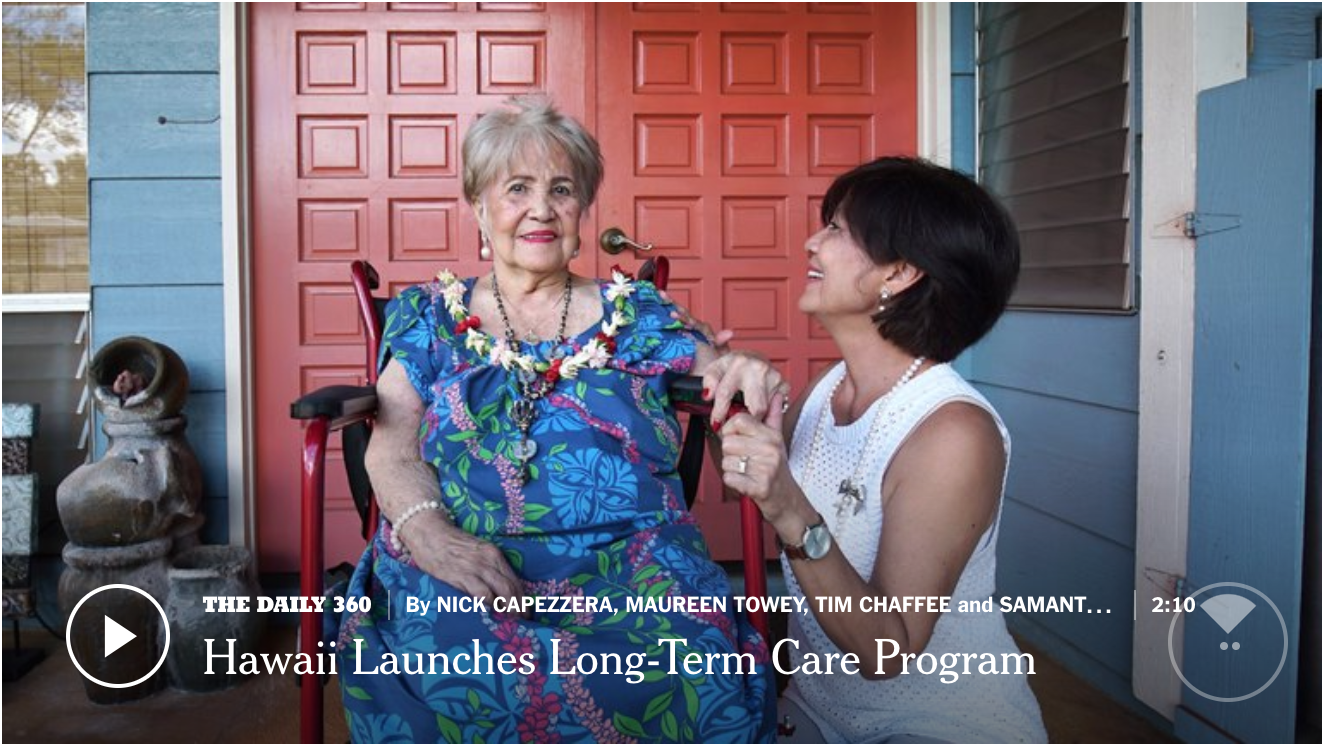We are proud to announce the launch of the CREATIVE CARE COUNCIL! LEARN MORE
We are proud to announce the launch of the CREATIVE CARE COUNCIL! LEARN MORE

This video and article first appeared on The New York Times. Watch and read the original there.
Eleanor Thommes and her sister have reorganized their schedules and finances to take care of their 93-year-old mother, Elising Roxas, who needs round-the-clock care.
“A lot of women, especially single women, need to work,” said Ms. Thommes, 63, who lives in Mililani, Hawaii. “But at the same time they have all these responsibilities, to pay the bills, and to caregive. How can they possibly do all of that the same time?”
A new program in Hawaii, the Kupuna Caregivers Act, is designed to help lift some of the burden on people caring for an elderly family member at home by paying them stipends of up to $70 a day. The word Kupuna means elder in Hawaiian.
The program, which went into effect this week, is limited to those who work at least 30 hours per week. The money can be used for caregiving supplies, to supplement lost wages or to hire help. The legislation recognizes that many Hawaiian families prefer to have their parents and grandparents age at home, rather than in a nursing home or assisted living facility.
Long-term care continues to be a complicated equation for many Americans. Private long-term care insurance is a shrinking industry with premiums too expensive for many people to afford. For low-income families, Medicaid offers some options. At the state level, Maine and Washington are also considering their own programs.
Washington has been a leader in long-term care for many years. In 2017, it was ranked first in the quality and execution of long-term care in a study commissioned by AARP and several partner organizations. Representative Laurie Jinkins, a Democrat, and Representative Norm Johnson, a Republican, introduced a bill last winter called the Long-Term Care Trust Act, which would provide universal long-term care in the state. Everyone would contribute through a payroll deduction, and everyone would be guaranteed a long-term benefit if needed. The program would provide $100 a day to support caregiving across a range of care situations including at-home care, assisted living and nursing homes. Washingtonians have a strong track record of passing legislation on a similar model, including universal paid family leave in 2017 and universal paid sick leave in 2016. The bill is expected to be reintroduced in early 2018.
In Maine, 59 percent of the population identifies as current or former caregivers. The Maine People’s Alliance is collecting signatures for a ballot initiative calling for universal home care, which would make home caregiving available to people over 65 or those with disabilities. The proposed budget for this program would be funded by a 1.9 percent Social Security tax on people making over $127,000.
“We’ve gotten a more emotional reaction to this campaign than anything else we’ve worked on,” said Ben Chin, the political engagement director of the Maine People’s Alliance.
Health care legislation in Maine has been hotly debated recently as Gov. Paul LePage, a Republican, has vetoed Medicaid expansions five times, though a recent ballot measure did push through that expansion. The Maine’s People’s Alliance anticipates reaching its signature goal by the end of January.
The proposed legislation in Washington is limited to 365 days (consecutive or not) of caregiving support and the Kupuna Caregivers program is starting with a six-month trial period. With those limits, these programs aren’t meant to be lifetime care. But they offer options for families that can’t afford private insurance and don’t want to spend down retirement savings to qualify for Medicaid.
The programs could provide relief for struggling families and serve as models for other states.